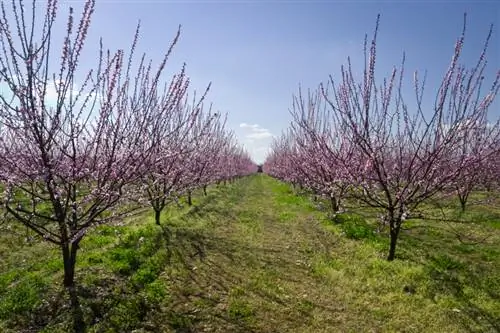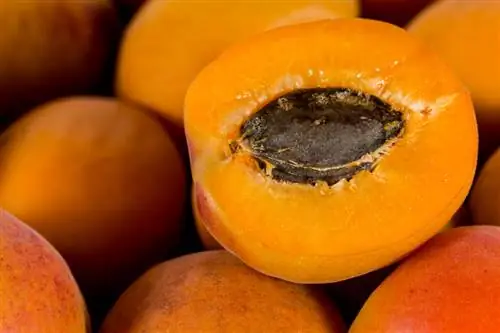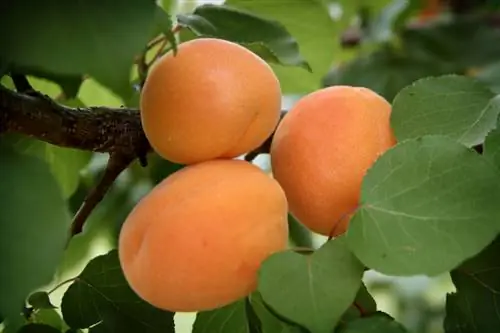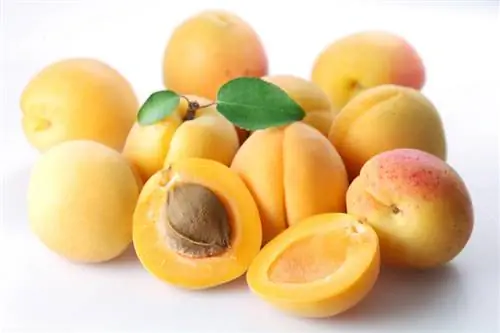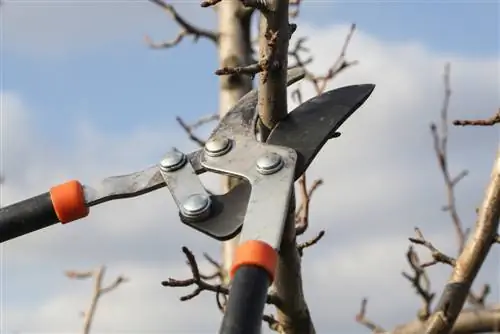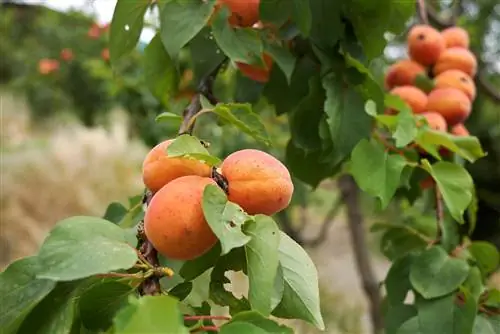- Author admin [email protected].
- Public 2023-12-16 16:46.
- Last modified 2025-01-23 11:20.
Delicious apricots enjoy a high reputation throughout Germany. Despite innovative breeding, their cultivation primarily takes place in mild wine regions. We report on current developments and distribution.
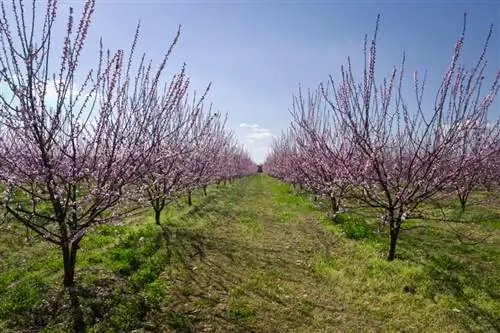
How widespread is apricot cultivation in Germany?
Apricot cultivation in Germany is difficult due to unfavorable climatic conditions such as late frosts, storms and diseases and is mainly limited to the milder wine-growing regions with high air dryness and temperatures. Cultivation is primarily carried out for direct marketing on regional markets.
Southwest Growing Areas
Behind the Alps to the Rhine region, the cultivation of sweet temptations brings impressive results. A rich harvest harmonizes with high-quality fruits. These are characterized by their appearance and tasty pulp.
Unfavorable conditions dominate
In contrast to the main growing regions such as Turkey, South Africa, Spain or France, natural phenomena such as storms, hail, rain and diseases have a significant influence on apricot cultivation in Germany. The warmth-loving fruits often end up in an apricot lover's dream.
In addition, there are incalculable risk factors due to late frosts. This particularly affects apricot varieties that bloom early in April. Although some of the trees are very frost hardy during winter rest, they react sensitively in spring. Damage to wood and bark is now part of everyday life. News reports repeatedly report that the apricot harvest is failing due to severe frosts. Cultivation turns out to be uneconomical.
Climatic advantages of wine-growing regions:
- Air dryness
- high temperatures
Regional apricot trade
The resulting yield uncertainty limits apricots to a niche crop. This enjoys a high reputation primarily in regional markets. On small areas, cultivation takes place exclusively for direct marketing.
Sober outlook
On a scientific level, experts are testing new methods for flower thinning. These are intended to prevent the unfavorable overhang of the productive harvest years. The focus is also on new varieties. Since these are often no longer self-fertile, this approach ends in complex relationships, as suitable pollinator insects and pollinator varieties have to be integrated into the overall concept. Nevertheless, nothing will change in the long term when it comes to the production volume for German gourmets.
Tips & Tricks
If the location conditions are optimal, you can also harvest delicious apricots in your home garden.

